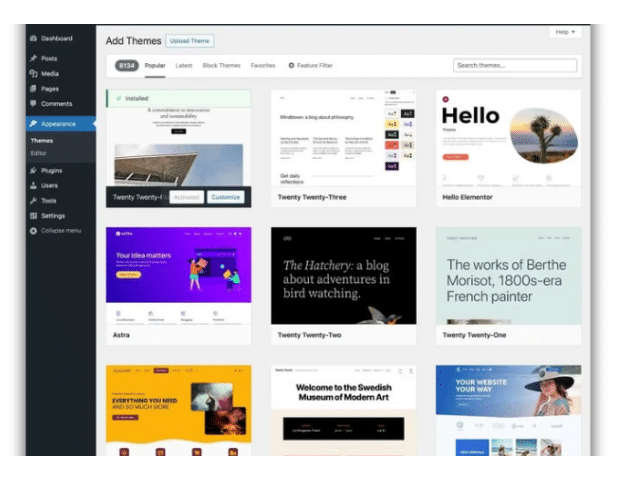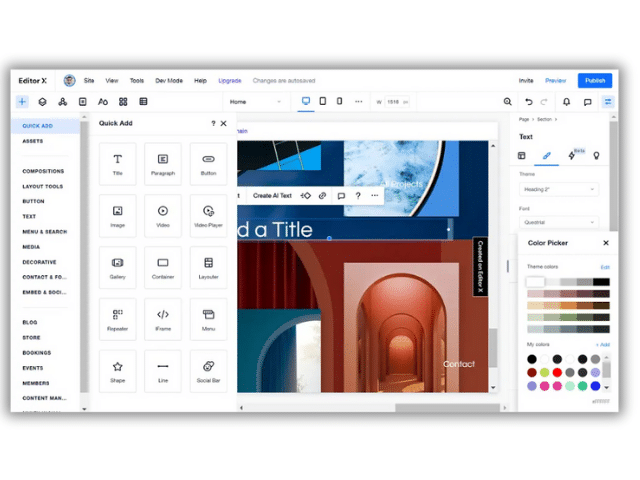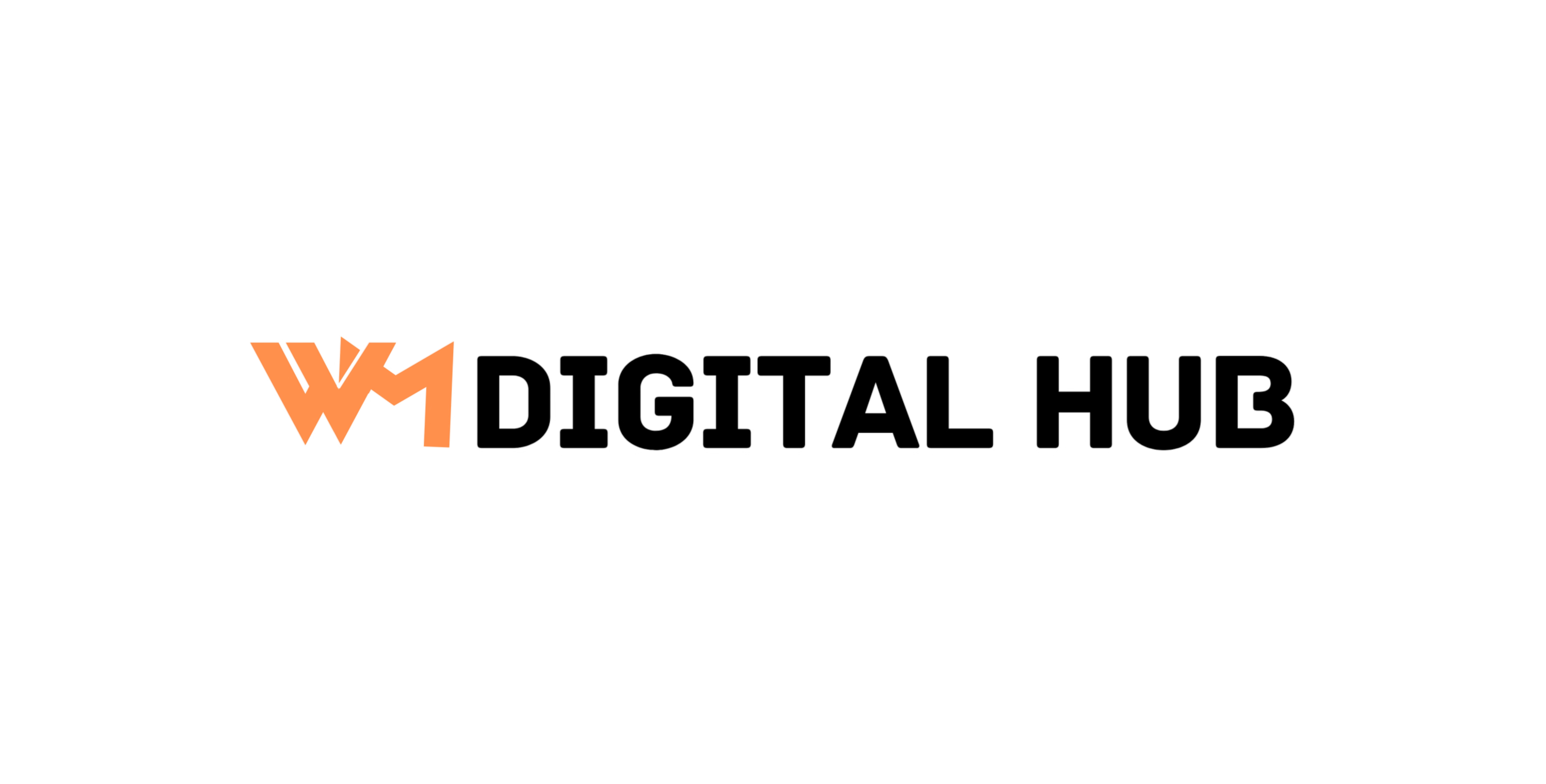Blogging in 2025 offers immense opportunities to express creativity, share knowledge, and even build a career. For beginners, however, the most crucial decision lies in selecting the right blogging platform. With numerous free blogging platforms available, choosing the one that suits your needs can be overwhelming. This guide will explore the 10 best free blogging platforms for beginners in 2024, detailing their features, pros, and cons to help you make an informed decision.
1. WordPress.com – The All-Rounder for Beginners
WordPress.com is arguably the most popular blogging platform in the world, offering an excellent mix of simplicity and functionality. With its free plan, WordPress provides a hassle-free experience for beginners. You don’t need to worry about hosting or maintenance—just sign up, choose a theme, and start blogging.

One of WordPress’s standout features is its vast library of themes, which allows you to quickly customize the look of your blog. While the free plan doesn’t offer access to advanced features like plugins or custom domain names, it still gives you enough tools to create a polished, functional blog. Additionally, as your blog grows, you have the flexibility to upgrade to a premium plan for more advanced features.
Advantages: Free hosting, access to a wide range of themes, and a large support community.Limitations: Some features are restricted on the free plan, including the ability to add plugins and a custom domain.
For anyone serious about blogging but looking for a free entry point, WordPress is a solid choice.
2. Blogger – The Google-Backed Simplicity
Blogger, owned by Google, has been a staple in the blogging world for many years. Its simplicity is one of its strongest features, making it an excellent choice for beginners who want to focus purely on content creation without the complexities of website design or technical setup.

With Blogger, you get free hosting and the ability to monetize your blog through Google AdSense. The platform’s integration with other Google tools, such as Analytics and Adsense, makes it easy to track your blog’s performance and generate revenue. While customization options are limited compared to other platforms, Blogger’s straightforward interface and ease of use make it perfect for those just starting out.
If you want a no-frills platform that gets you blogging quickly, Blogger is an excellent choice.
3. Medium – Focus on Content, Not Design
Medium is unique because it prioritizes content over design. If you’re a writer looking for a platform that allows you to share your ideas without worrying about the technical aspects of website design, Medium is an ideal choice.
Medium’s minimalist design ensures that your content takes center stage. The platform also boasts a built-in audience, which can help new writers gain exposure. Medium’s Partner Program allows you to monetize your content based on engagement, providing an opportunity to earn as you grow your audience.
However, Medium’s design flexibility is limited. You don’t have full control over the look and feel of your blog, which might be a drawback for those who want a personalized, unique site. Despite this, it’s a great platform for those who want to focus on writing.
4. Wix – Flexible and Creative Freedom
Wix is a powerful drag-and-drop website builder that also offers a free blogging option. Known for its design flexibility, Wix provides a variety of templates, allowing you to customize your blog to fit your unique style. Its intuitive interface is perfect for beginners who want creative control over their blog’s look.

Wix’s free plan includes hosting and the ability to create a blog with full customization. However, you’ll have to deal with Wix ads on your blog unless you upgrade to a paid plan. While Wix’s free plan offers a lot, its limitations on features like custom domains may be a consideration for those looking to make a more professional impression.
Despite these limitations, Wix remains an excellent choice for bloggers who prioritize creativity and design flexibility.
5. Weebly – A Simple and Effective Blog Builder
Weebly is another website builder that allows beginners to easily create a blog. Like Wix, it uses a drag-and-drop interface that makes customizing your blog a breeze. Weebly offers free hosting and a variety of responsive templates to choose from, making it an excellent option for those who want a professional-looking blog without technical hassles.
Weebly’s free plan does come with some limitations, such as displaying Weebly branding and restricting the ability to connect a custom domain. Nevertheless, it’s a great starting point for beginner bloggers looking to create a functional and attractive blog.
If you’re just starting out and need a simple platform to test the waters, Weebly is a great place to begin.
6. Tumblr – The Creative Social Blogging Platform
Tumblr stands apart from traditional blogging platforms by offering a blend of blogging and social media elements. It’s ideal for those who want to create content, share it with others, and engage in a community. Tumblr allows users to post everything from text-based blogs to photos, GIFs, and videos, making it especially appealing to creative types.
Its free and easy-to-use interface enables beginners to start blogging quickly. Moreover, Tumblr’s social features allow you to follow other blogs, share content, and engage with your audience. However, its customization options are more limited than other platforms, so it’s best suited for those who want a casual, creative blog rather than a professional one.
7. Ghost – For Serious Bloggers Who Want Full Control
Ghost is an open-source platform that provides a streamlined, distraction-free writing environment. Designed for serious bloggers, Ghost focuses on offering high-quality publishing tools, making it ideal for bloggers who want to focus on content and have technical knowledge.
The free version of Ghost requires you to host it yourself, which might be a bit challenging for beginners who are unfamiliar with website management. However, if you have experience with coding and want full control over your blog, Ghost offers unparalleled flexibility. Its minimal design and emphasis on performance ensure that your blog runs smoothly and looks professional.
For more advanced bloggers, Ghost is a powerful option to consider.
8. Jekyll & GitHub Pages – A Developer’s Dream
If you’re comfortable with coding and want a fully customizable blog, Jekyll paired with GitHub Pages is a fantastic option. Jekyll is a static site generator, and when hosted on GitHub Pages, it allows you to create a blog with complete control over design, functionality, and performance.
This setup is ideal for developers or those with technical expertise who want to build their blog from scratch. It’s free, but it requires technical know-how to set up and manage. If you’re looking for flexibility and don’t mind diving into the code, Jekyll and GitHub Pages provide immense customization options.
9. Substack – Monetize Your Blog with Newsletters
Substack has gained popularity among writers and bloggers who want to directly connect with their audience through email newsletters. While it’s not a traditional blogging platform, Substack allows you to create a blog that is delivered straight to your subscribers’ inboxes.
What makes Substack unique is its ability to monetize your content by offering subscription-based newsletters. You can offer paid content to your subscribers, creating a reliable income stream. This makes Substack an ideal platform for those looking to create a loyal, paying audience.
For bloggers who want to focus on writing and monetizing their work, Substack is an excellent choice.
10. Webnode – Multilingual Blogging for Global Reach
Webnode is an intuitive website builder that also offers blogging capabilities. One of the standout features of Webnode is its ability to support multilingual blogs, making it an excellent choice for bloggers targeting an international audience.
With Webnode’s free plan, you can create a professional-looking blog, choose from a range of templates, and start publishing content. Like other free website builders, the platform comes with some limitations, including Webnode branding and fewer customization options. However, for beginners looking to create a multilingual blog or reach a wider audience, Webnode is a solid option.
—
Conclusion
Choosing the right blogging platform is crucial to your success as a blogger. In 2025, there are plenty of free platforms that allow you to get started quickly and easily. WordPress, Blogger, and Medium are excellent choices for those who want a straightforward blogging experience, while platforms like Wix, Weebly, and Tumblr provide more creative freedom. For tech-savvy users, Ghost and Jekyll offer advanced features and customization.
Regardless of your choice, the most important factor in blogging is consistency and dedication. Choose a platform that aligns with your goals, and focus on creating valuable content that resonates with your audience. Happy blogging!
check out this post 10 best WAYS to earn money online without any investment




